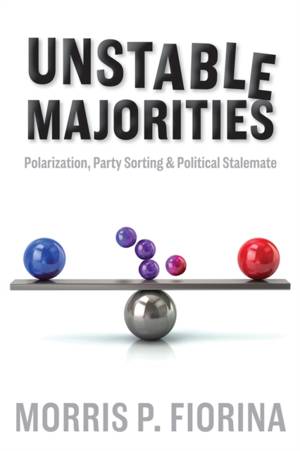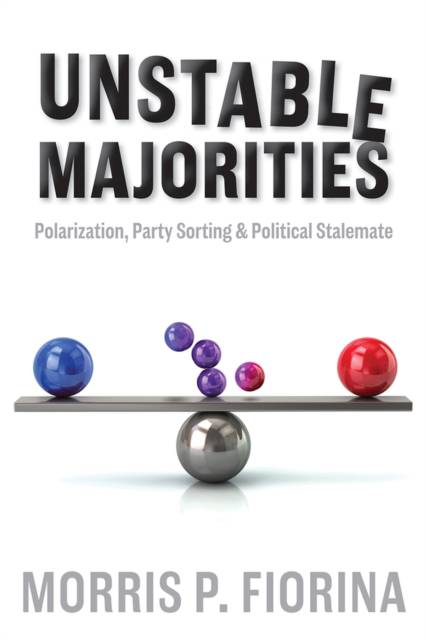
- Afhalen na 1 uur in een winkel met voorraad
- Gratis thuislevering in België vanaf € 30
- Ruim aanbod met 7 miljoen producten
- Afhalen na 1 uur in een winkel met voorraad
- Gratis thuislevering in België vanaf € 30
- Ruim aanbod met 7 miljoen producten
Zoeken
Unstable Majorities
Polarization, Party Sorting, and Political Stalemate
Morris P Fiorina
Paperback | Engels
€ 34,95
+ 69 punten
Omschrijving
America is "currently fighting its second Civil War." Partisan politics are "ripping this country apart." The 2016 election "will go down as the most acrimonious presidential campaign of all." Such statements have become standard fare in American politics. In a time marked by gridlock and incivility, it seems the only thing Americans can agree on is this: we're more divided today than we've ever been in our history. In Unstable Majorities Morris P. Fiorina surveys American political history to reveal that, in fact, the American public is not experiencing a period of unprecedented polarization. Bypassing the alarmism that defines contemporary punditry, he cites research and historical context that illuminate the forces that shape voting patterns, political parties, and voter behavior. By placing contemporary events in their proper context, he corrects widespread misconceptions and gives reasons to be optimistic about the future of American electoral politics.
Specificaties
Betrokkenen
- Auteur(s):
- Uitgeverij:
Inhoud
- Aantal bladzijden:
- 264
- Taal:
- Engels
Eigenschappen
- Productcode (EAN):
- 9780817921156
- Verschijningsdatum:
- 1/11/2017
- Uitvoering:
- Paperback
- Formaat:
- Trade paperback (VS)
- Afmetingen:
- 152 mm x 229 mm
- Gewicht:
- 353 g

Alleen bij Standaard Boekhandel
+ 69 punten op je klantenkaart van Standaard Boekhandel
Beoordelingen
We publiceren alleen reviews die voldoen aan de voorwaarden voor reviews. Bekijk onze voorwaarden voor reviews.











